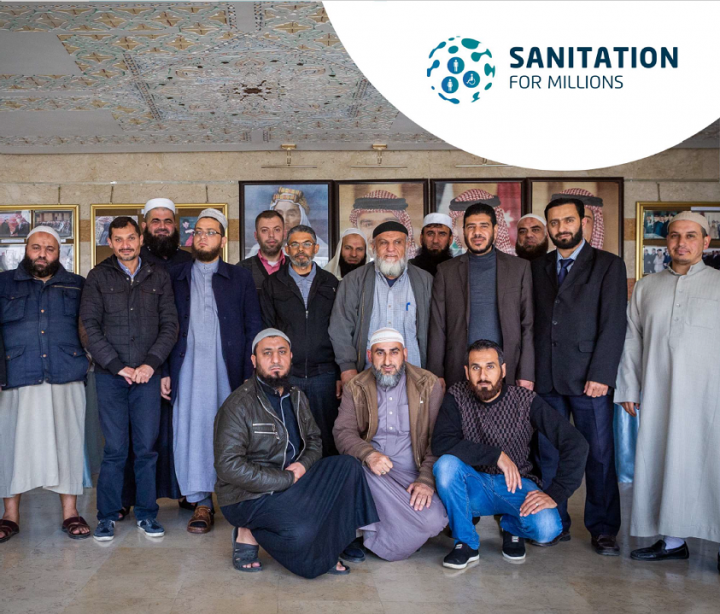
Published in: 2020
Pages: 7
Publisher:
Deutsche Gesellschaft für Internationale Zusammenarbeit (GIZ) GmbH
Author:
Gerlach, E.
Uploaded by:
SuSanA Admin
Partner profile:
common upload
2681 Views
72 Downloads
Location of library entry
Universal access to adequate sanitation is one of the under-appreciated achievements of many societies – and unfortunately remains a distant dream for millions. Even in countries where there is no home without a toilet, public institutions tend to have facilities that are part of the unseen fabric of civilisation. Familiar signs guide the way to public conveniences that are usually open to patrons and passers-by, free of charge. For most people, the experience of a quick visit only lingers if the facilities were particularly unpleasant. Signs of previous use (or misuse), leaking taps and broken flush or door handles are frowned upon: the unglamorous job of a caretaker is noticed mainly when it is not performed well.
Some groups of people, wherever they live in the world, are vulnerable to falling through the gaps of society, and hence public service provision. For the displaced and homeless, for example, a well-maintained public toilet may be more than an occasional stop gap. The solution to their sanitation problem is not as simple as matching existing ‘free’ toilets with people in need of one. Public toilets must be cleaned, and occasionally repaired, or suffer their own version of the tragedy of the commons. In order to create a safe and sustainable sanitation solution, the overlooked and undervalued caretaker moves to centre stage.
The ‘Hausmeister’ (German for caretaker) concept for facility management and maintenance, which has been implemented by the GIZ programme ‘Sanitation for Millions’ in Jordan, is built around this idea.
Bibliographic information
Gerlach, E. (2020). Sanitation for Millions - Curtain call for Caretakers: the Hausmeister concept. Deutsche Gesellschaft für Internationale Zusammenarbeit (GIZ) GmbH
Filter tags
Behaviour change (WG13) Capacity development (WG1) Educators English Guidelines and manuals Middle East & North Africa Operation, maintenance and sustainable services (WG10) Politicians and local decision makers Practitioners Public awareness, advocacy and civil society engagement (WG9) Schools Urban (entire city)















